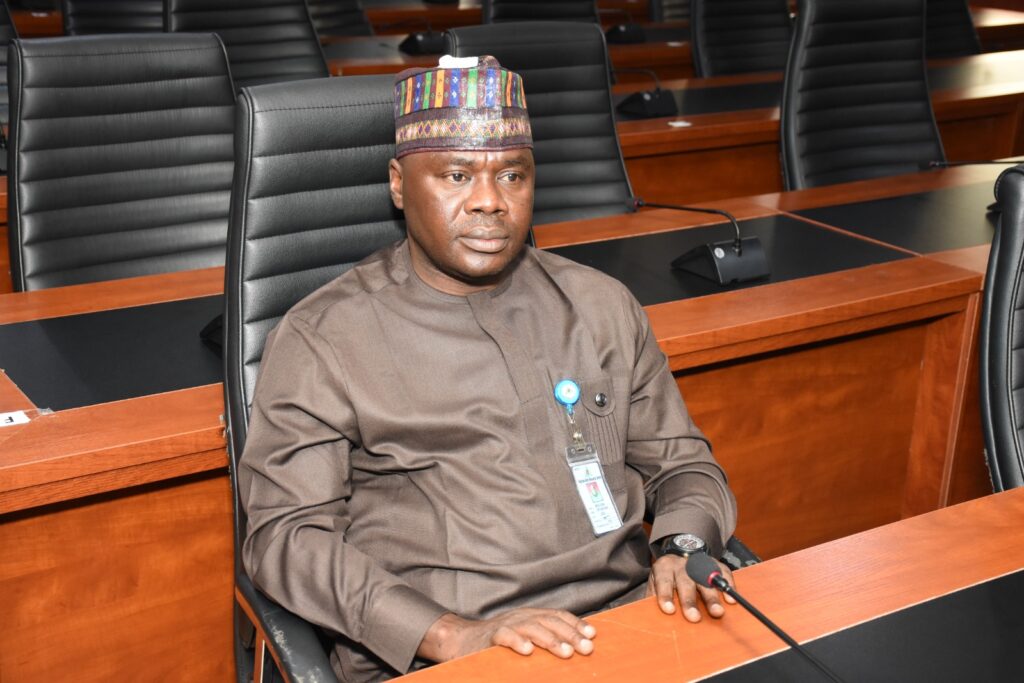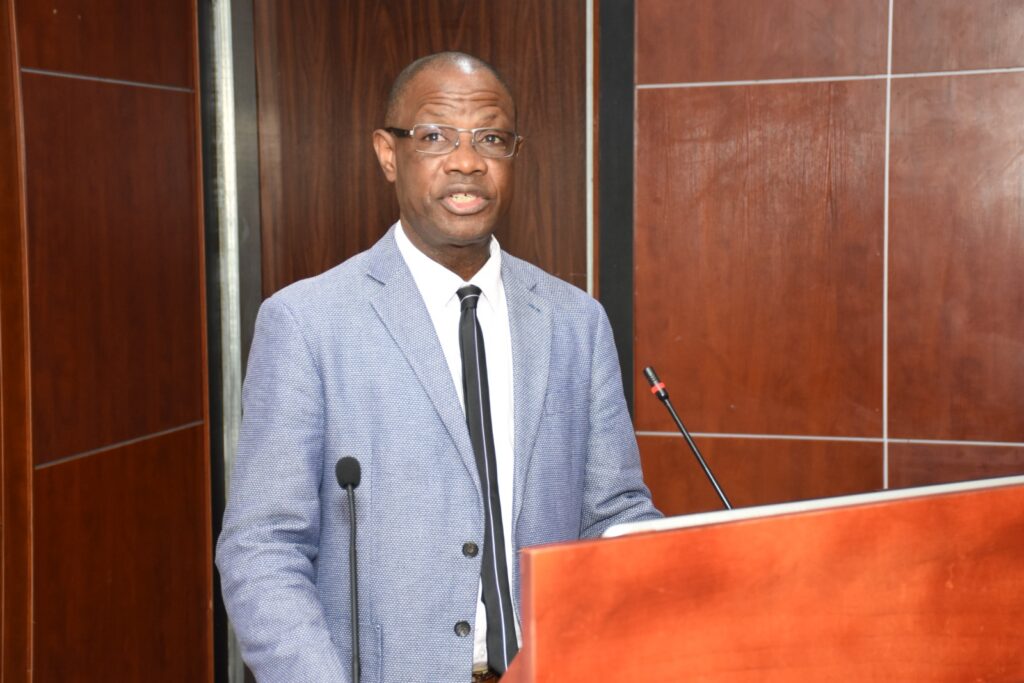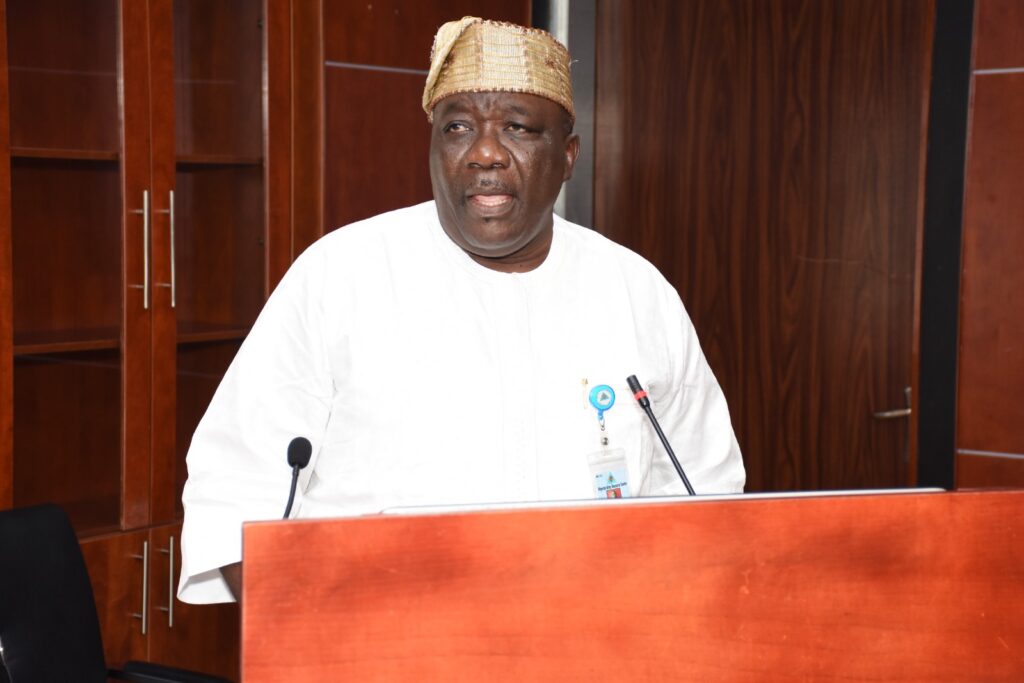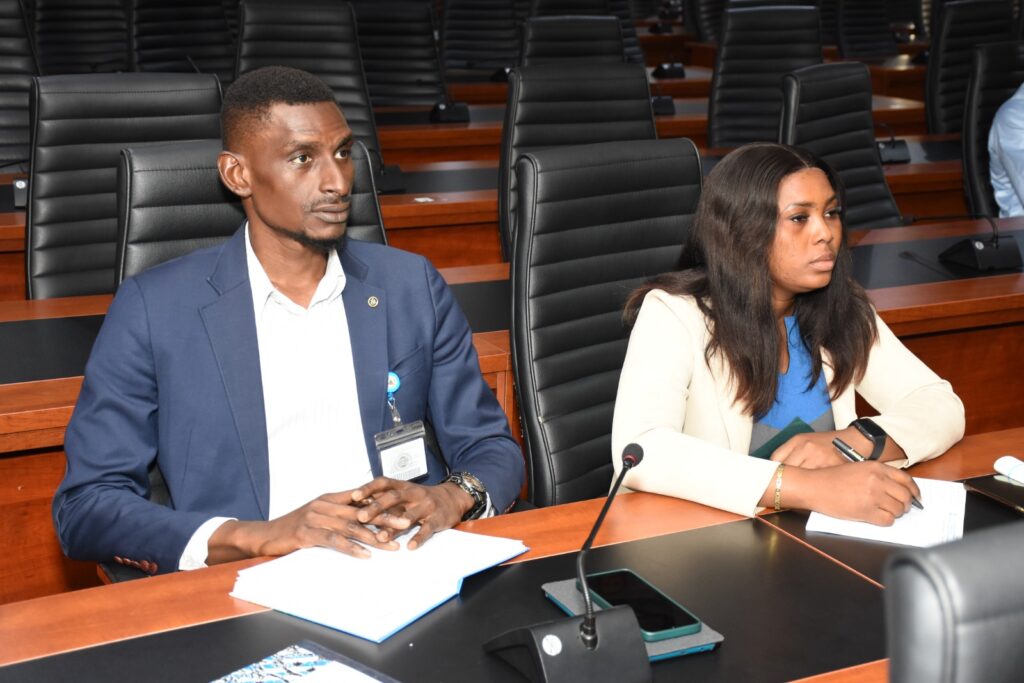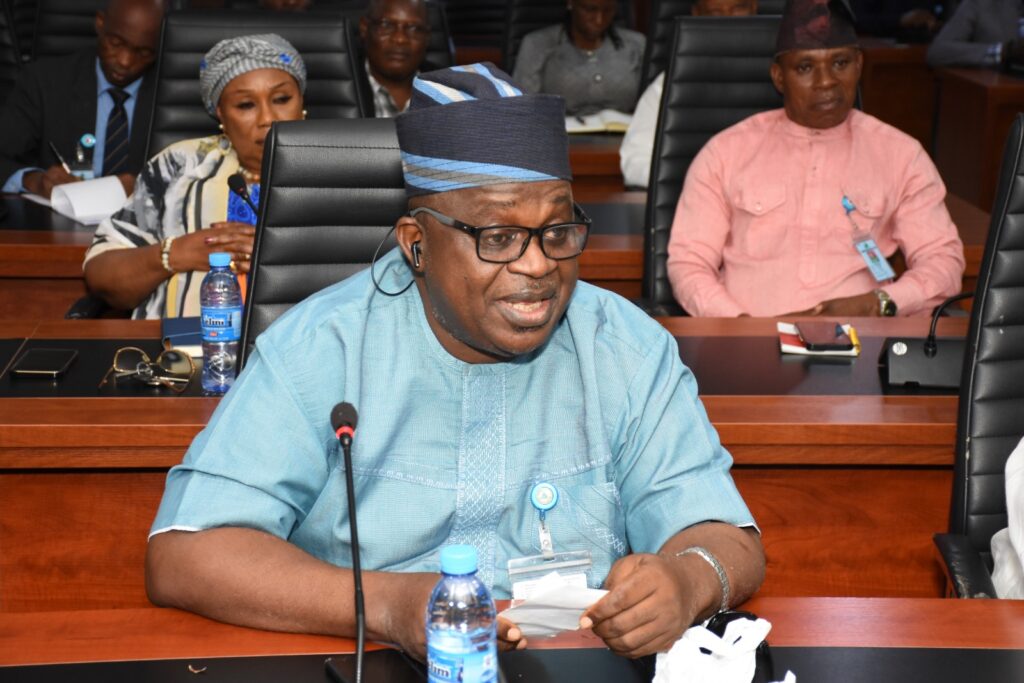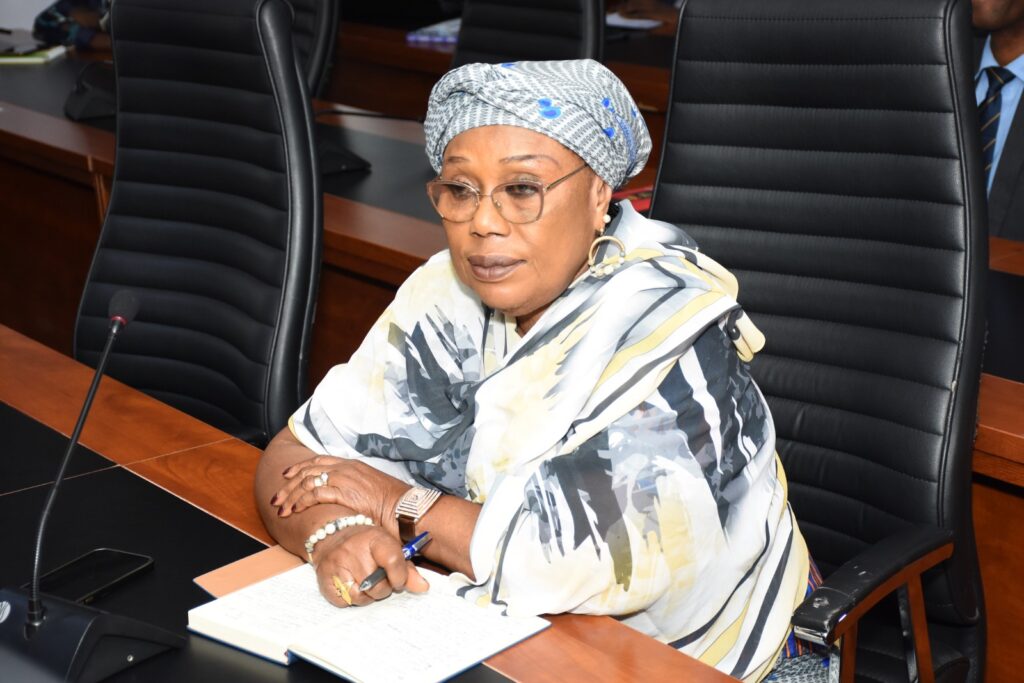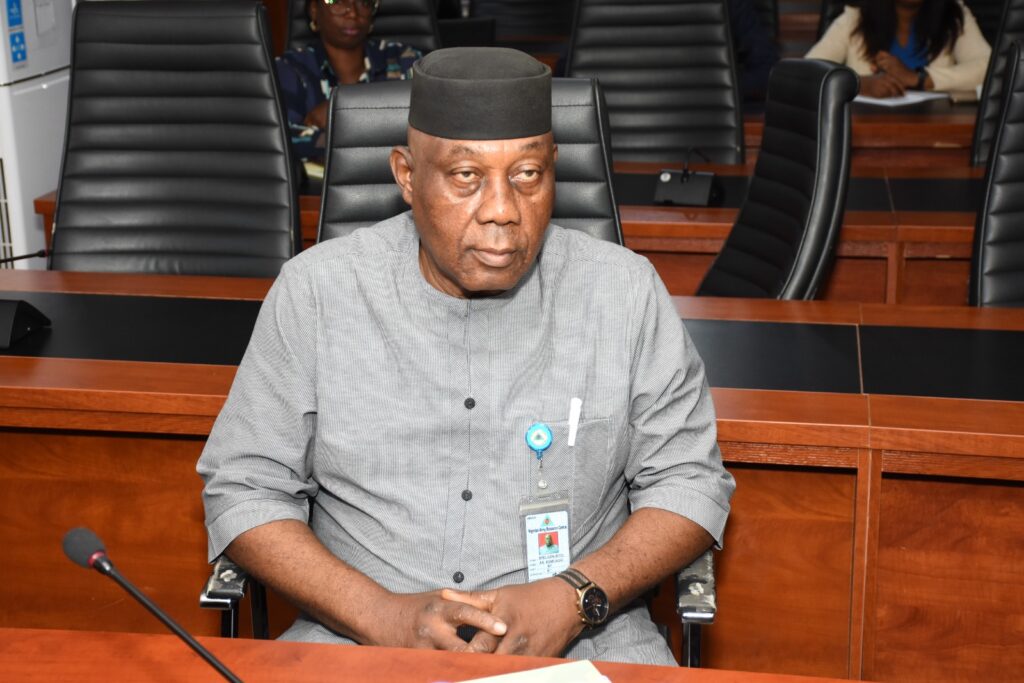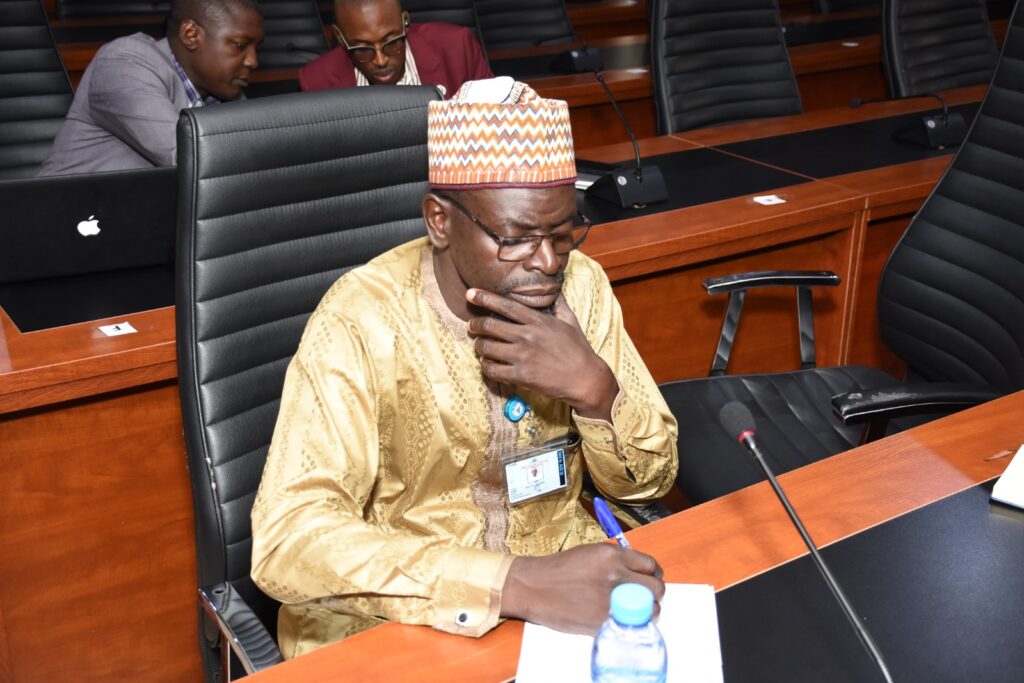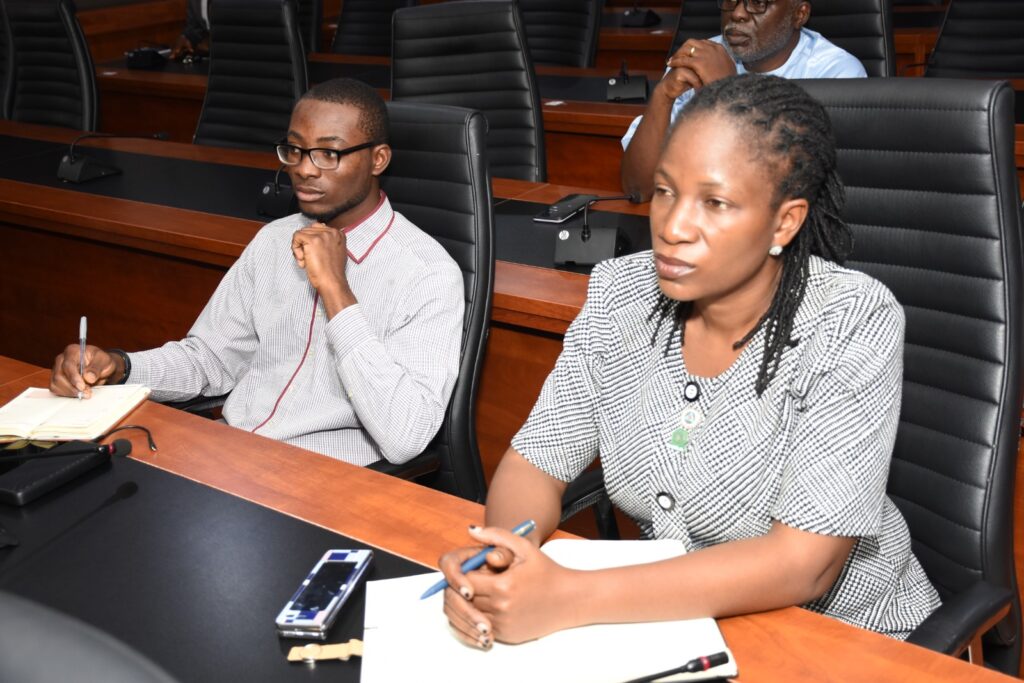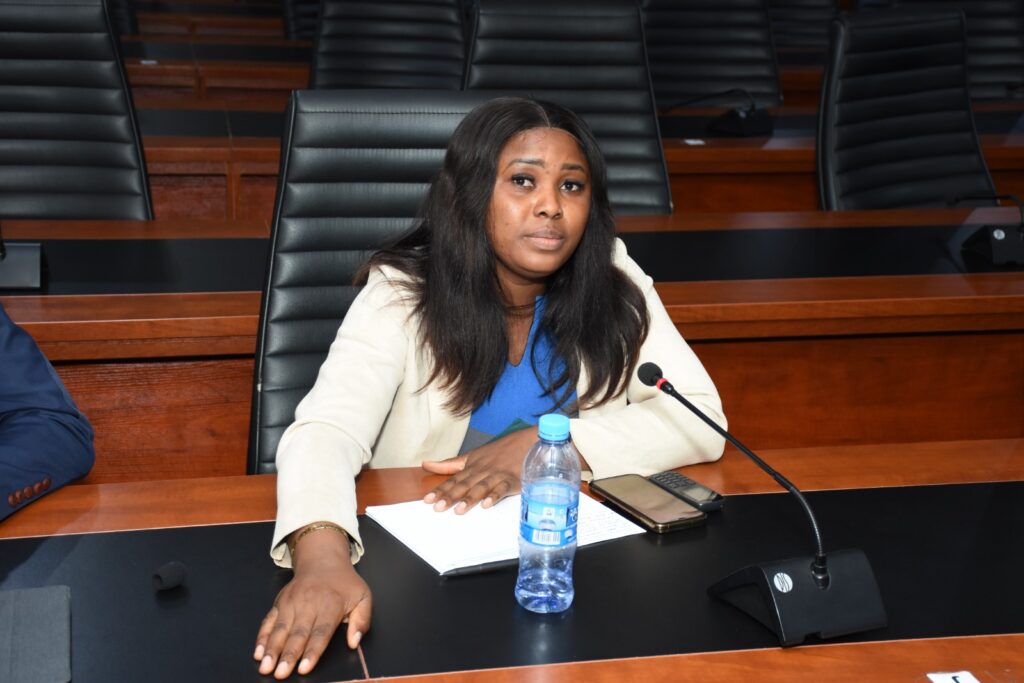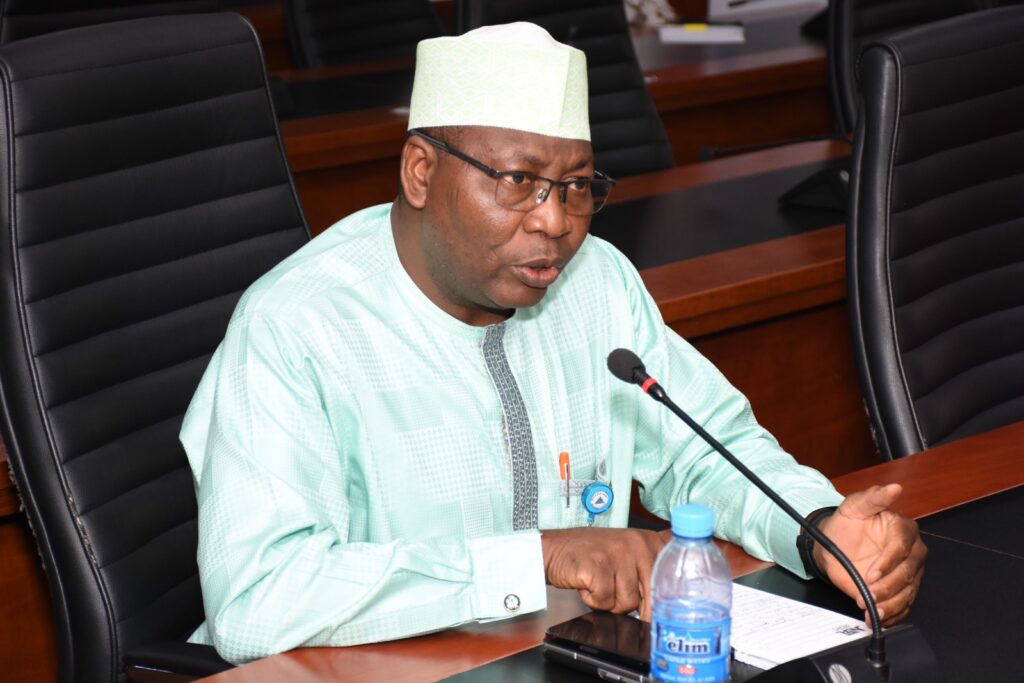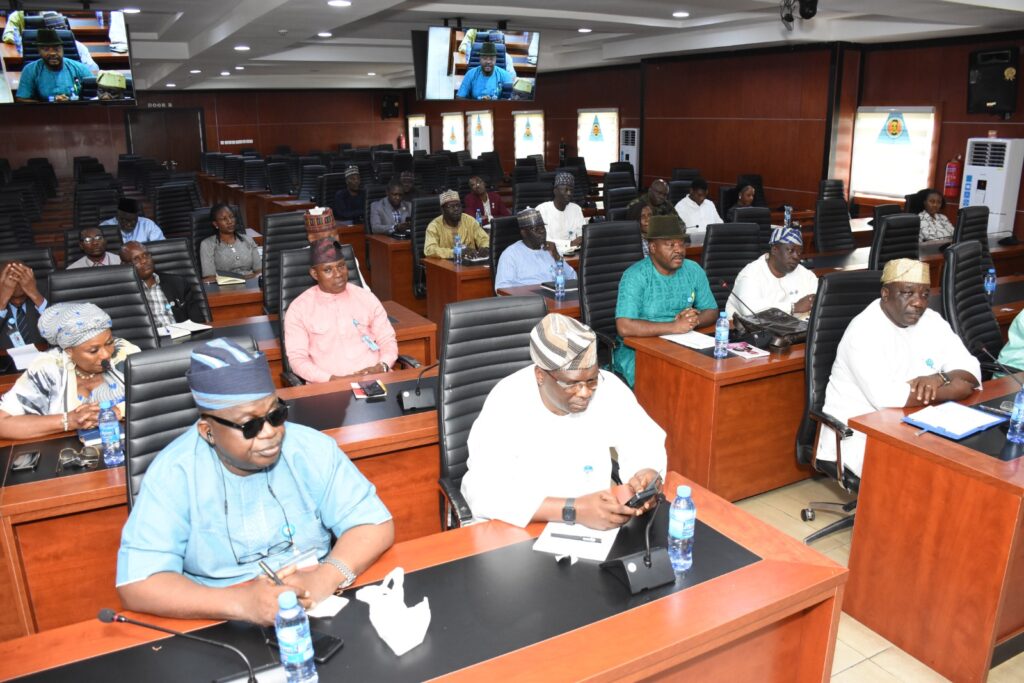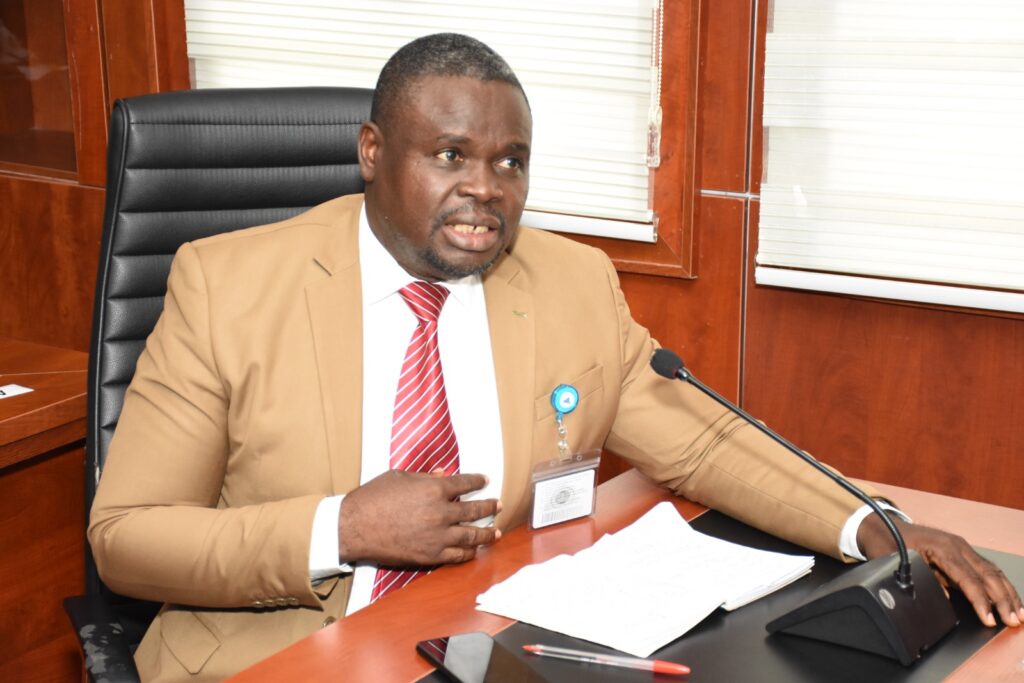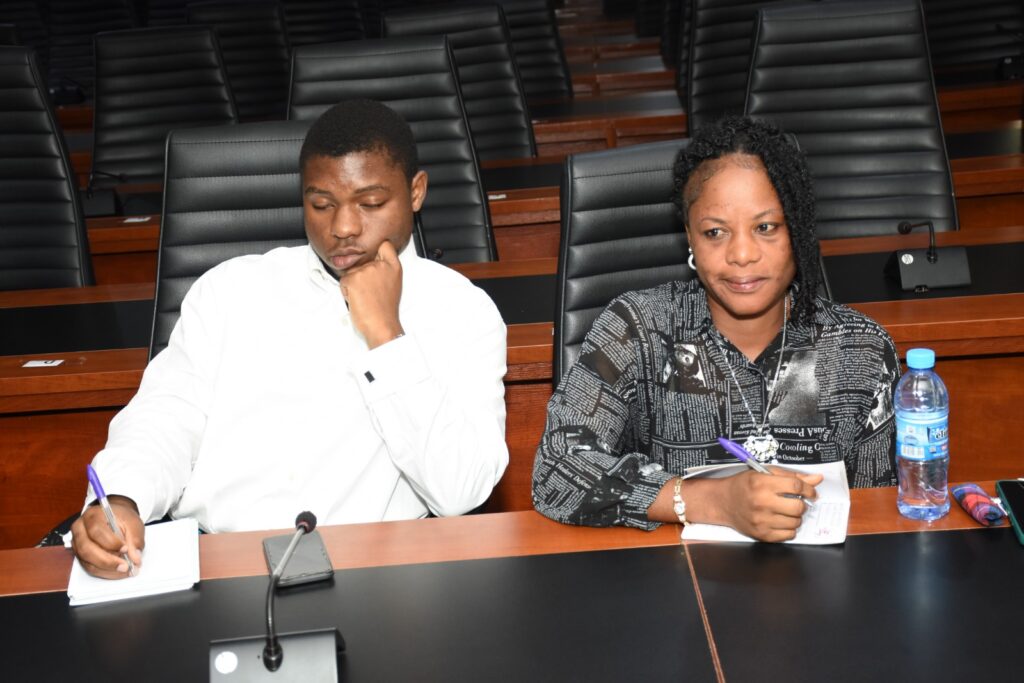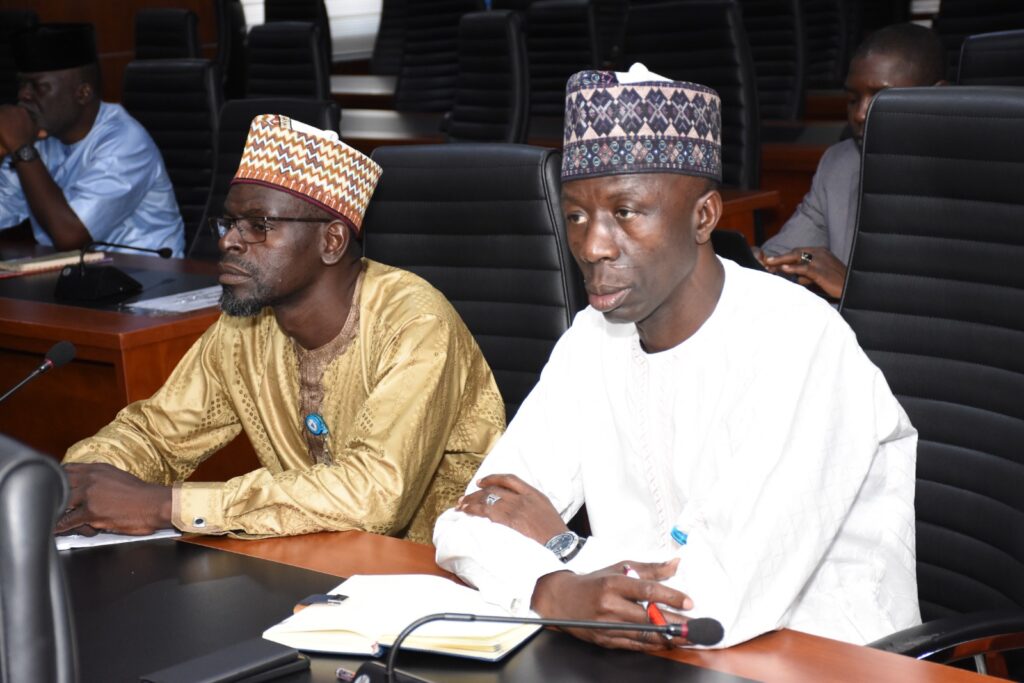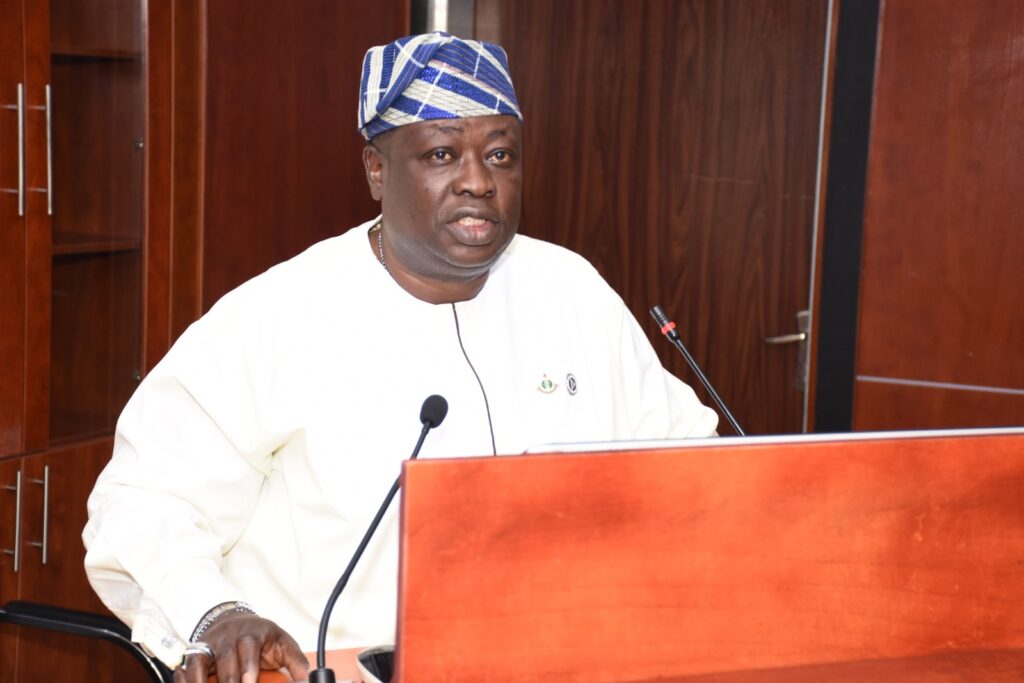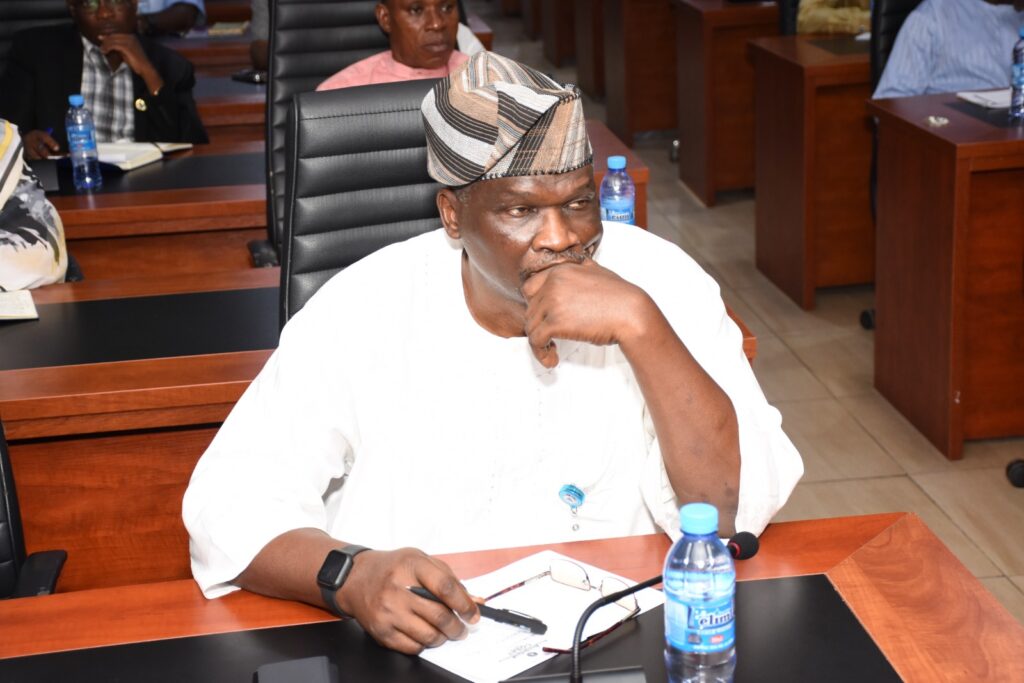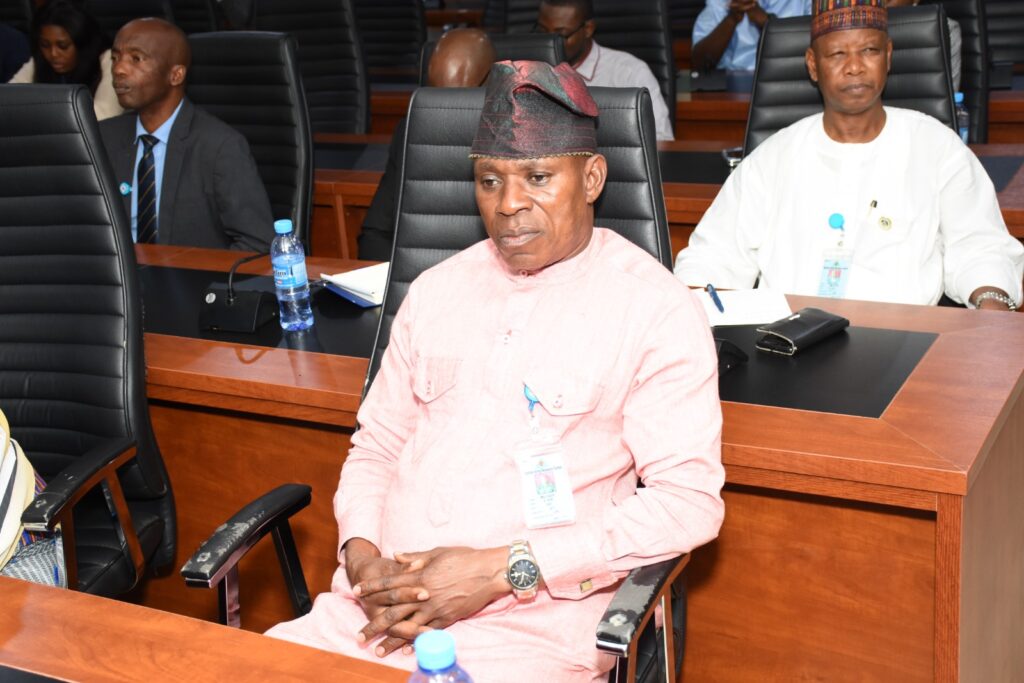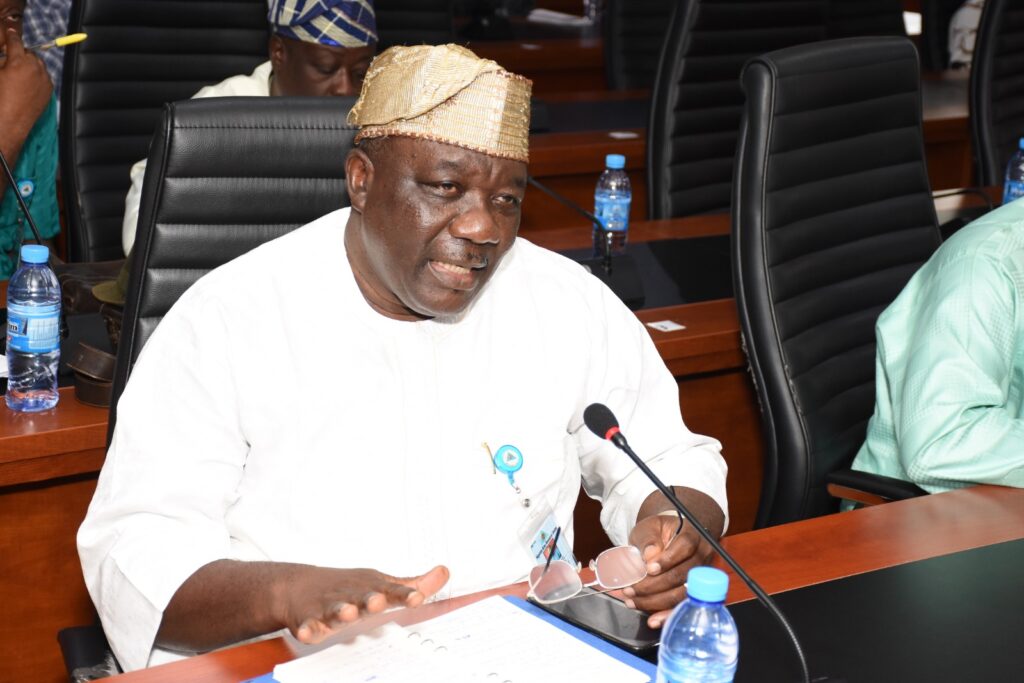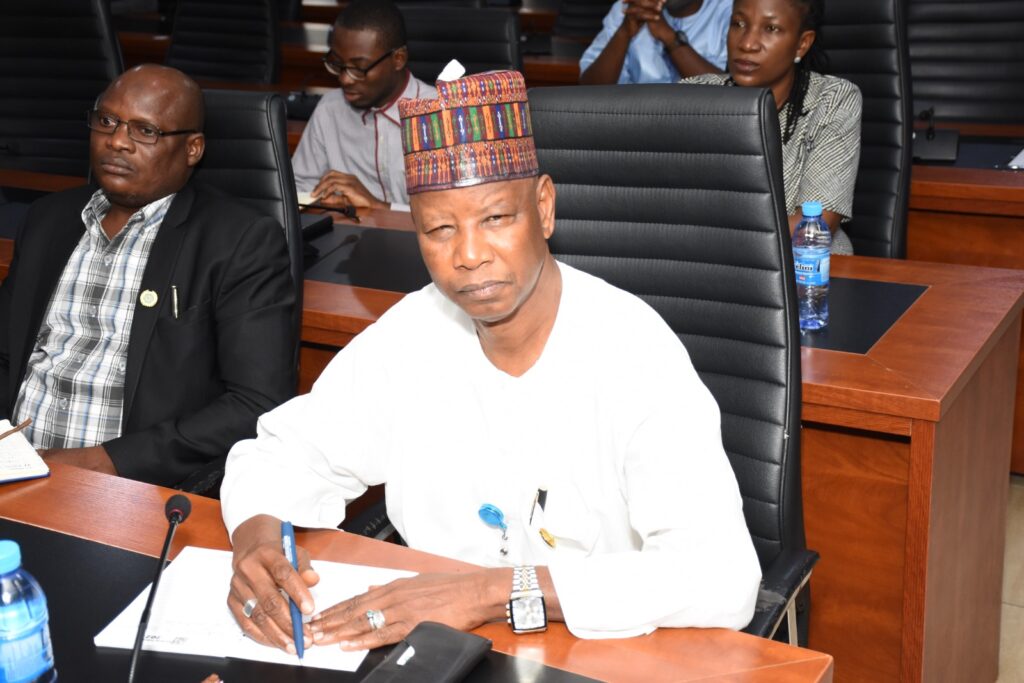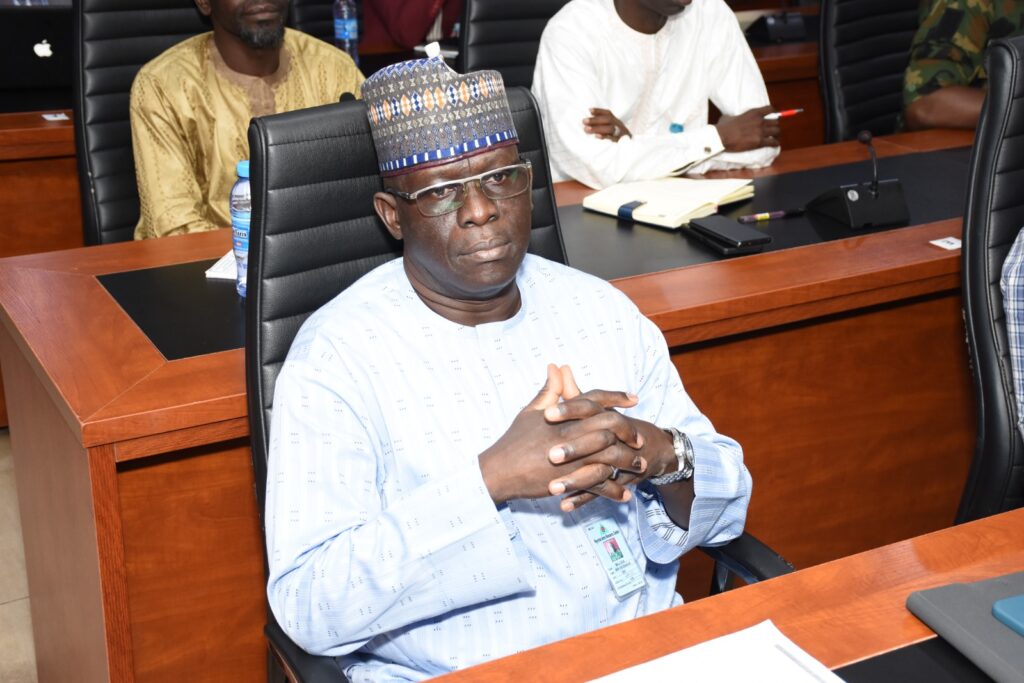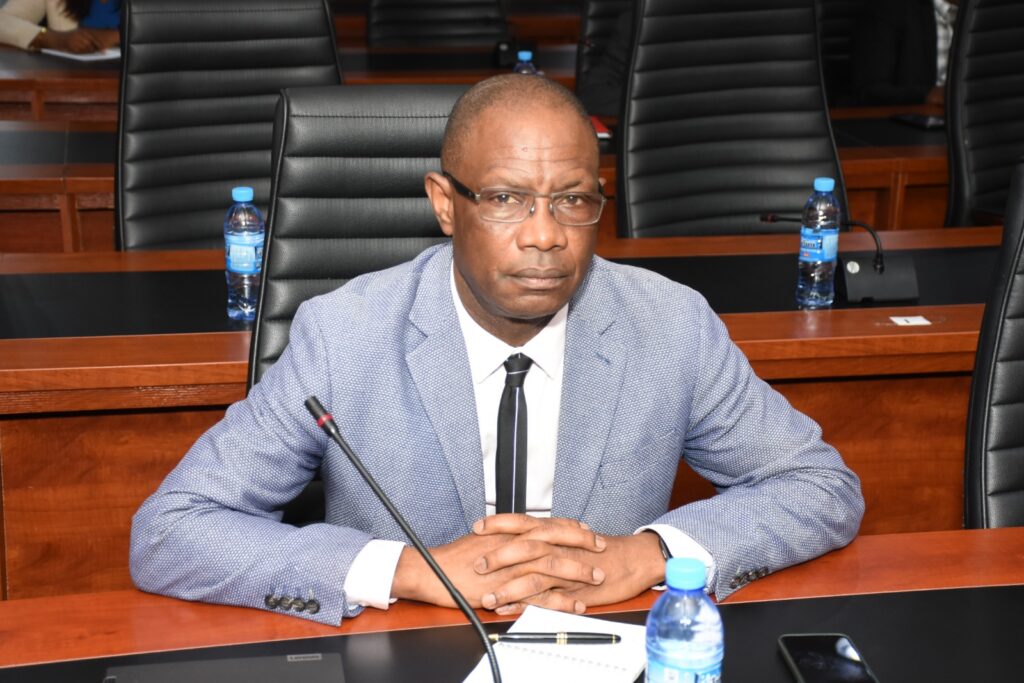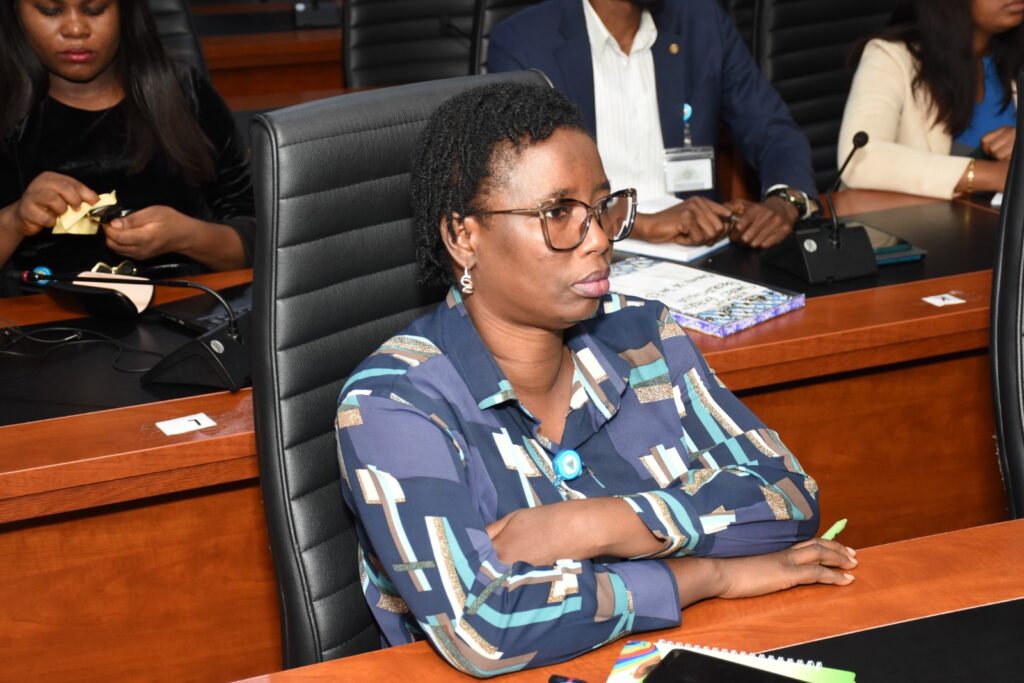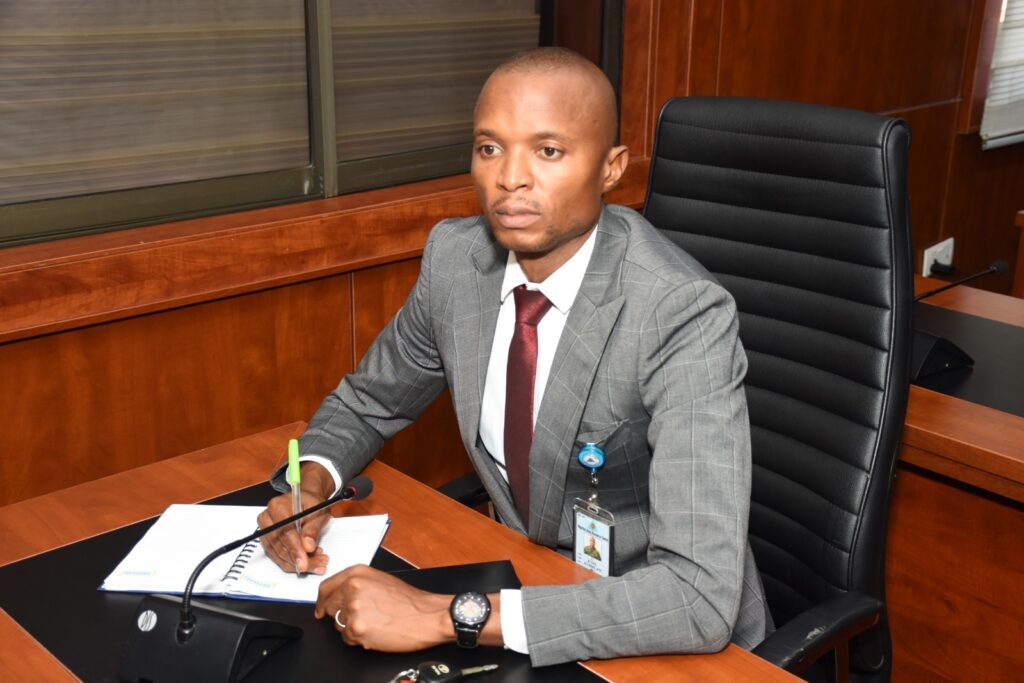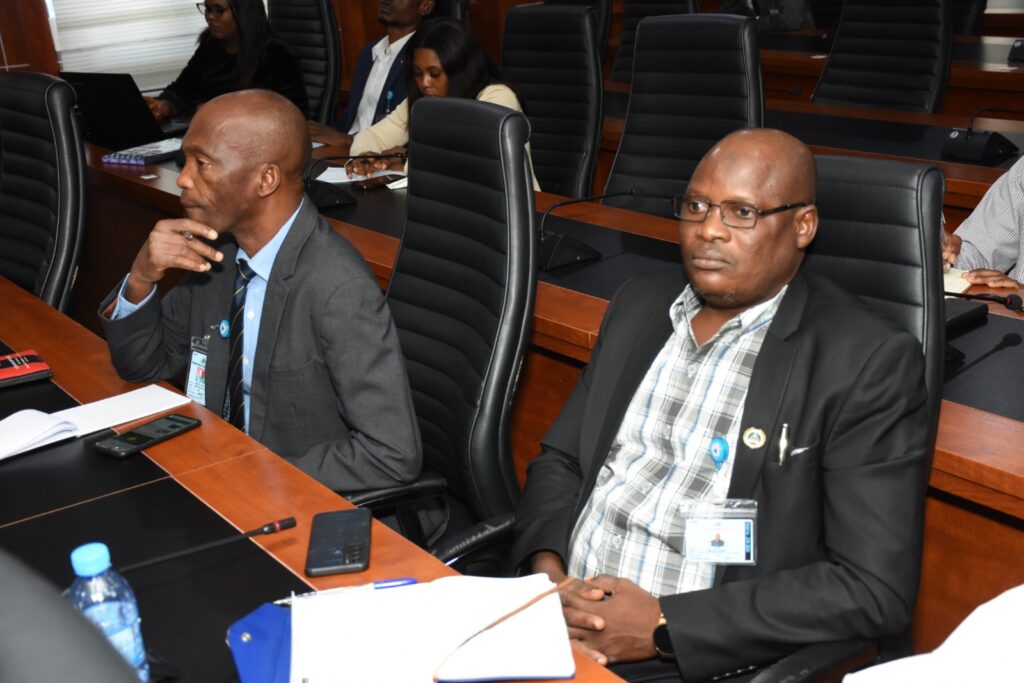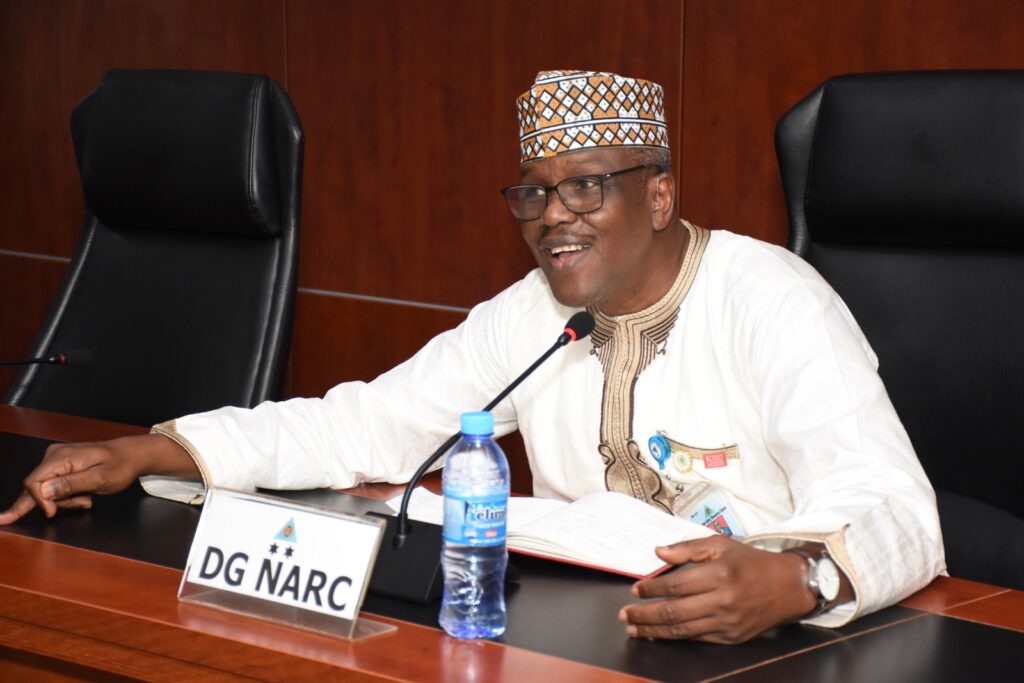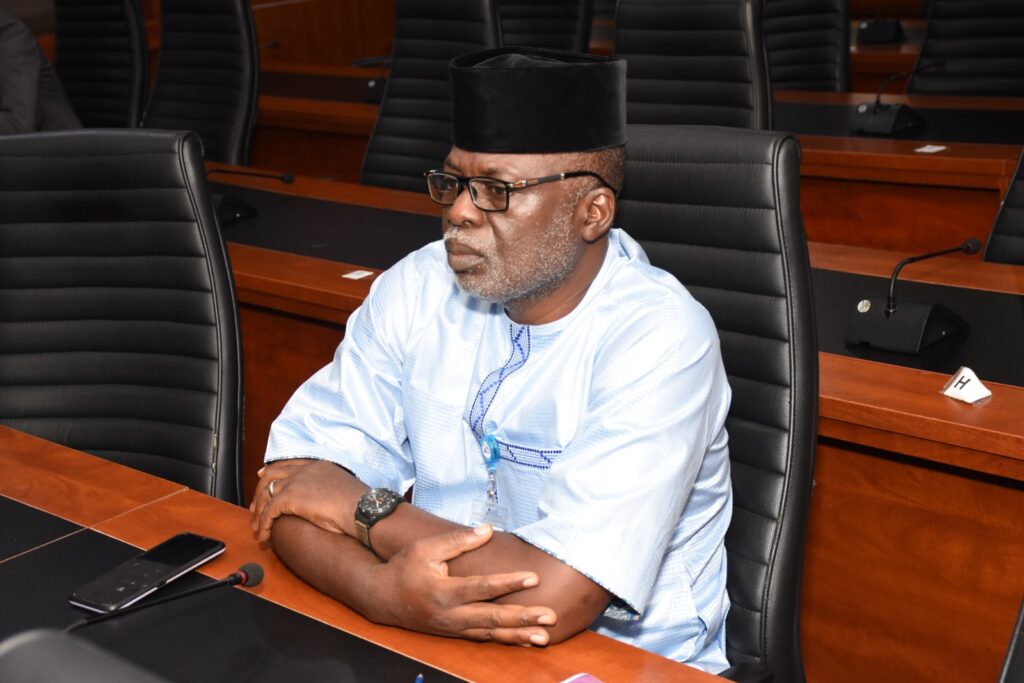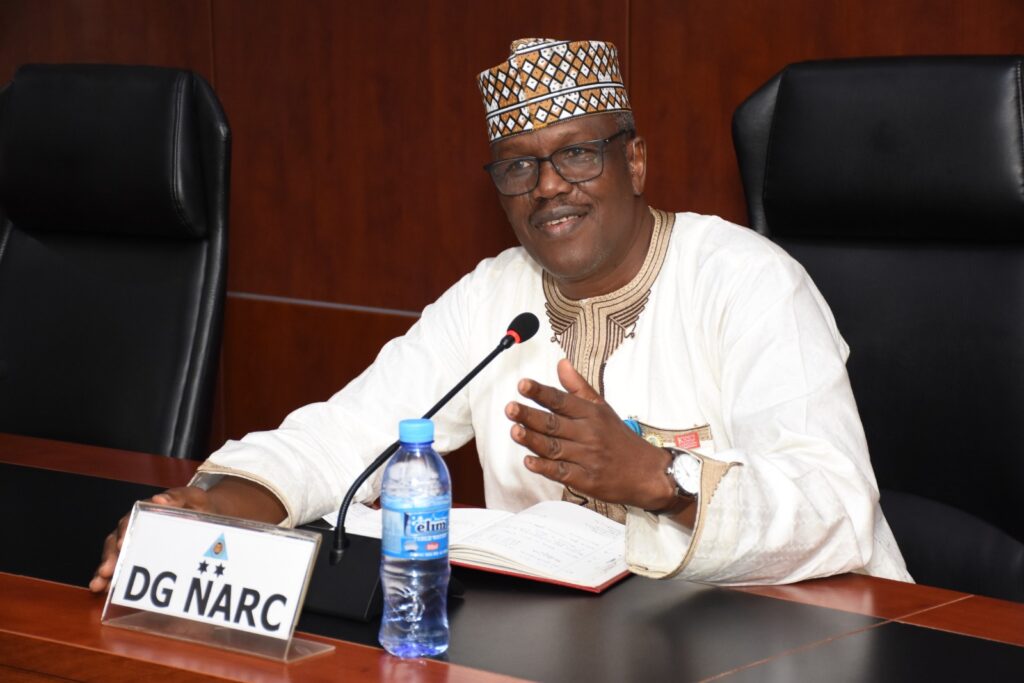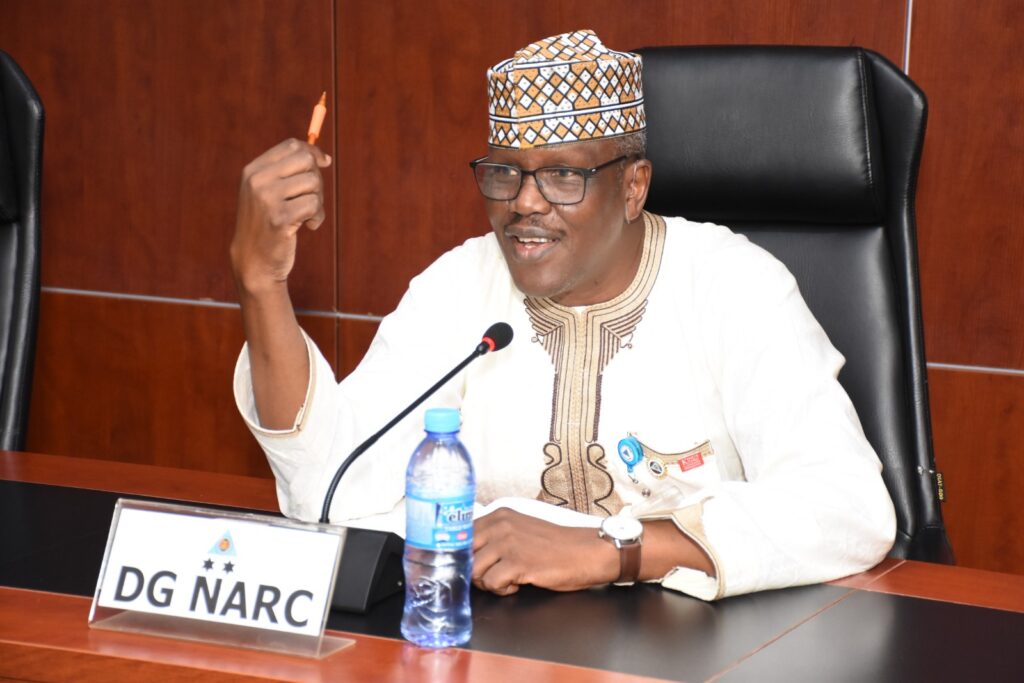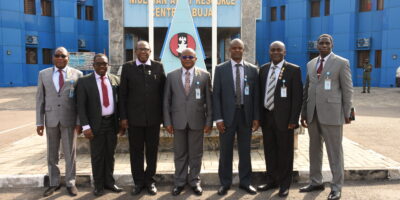Today’s edition of the Nigerian Army Resource Centre (NARC) Weekly Subject Experts’ Presentation was held at Hall C, TY Buratai Block, Abuja. There were four presentations made by the Subject Experts covering South Africa, China, Indian subcontinent and West Africa and Gulf Guinea
The first presentation by Maj Gen OO Adeleke (Rtd) subject expert for West Africa and Gulf of Guinea. His presentation discussed the Assessment of the socio-economic and political relationship between West Africa and the West. In post Colonia West Africa, the British sought to follow a process of gradual transfer of power and thus, independence, the French policy of assimilation faced some resentment from the colonies.
Francophone West Africa and the Anglo phone West Africa are so attached to their former Colonia masters, in such a way that the virtually see nothing wrong in such attachment and these West Africa states see their former colonia masters as grant givers and best customers. Challenges of ECOWAS socio-economic integration include: dependency problem, political instability, lack of mutual trust, inadequate financial contributions, costs and benefits distribution problems, diversity of monetary systems and planning implementation among others.
In his analysis and lesson for Nigeria, General Adeleke noted that Nigerian has to acquire for itself respect and prestige as a sub-regional power because of its leadership of ECOMOG in Liberia that it is fondly referred to as the ‘big brother’ by other ECOWAS states.
She must however, help in carefully determining the composition and end state of the ECOWAS standby force that would be used for any peace enforcement operation in Niger so that her intensions would not be misunderstood as an occupational power.
He further recommended that the Ministry of Foreign Affairs should carefully determine the participation of Nigeria in the ECOWAS standby force that would be used for any peace enforcement operation in Niger to eliminate a wrong perception of her intentions as an occupational power.
The second Presentation by Maj Gen JA Orokpo (Rtd) subject expert China. His presentation focused on how Chinese government expresses concern over declining youth population. This is consequent upon the country’s fertility rate slipping below 1.1 in 2022. A rate of 2.1 is required to sustain a population and it is reported that the country has entered a period of negative population growth, an important moment in the history of the country.
The decline in the country’s population is a direct consequence of the shrinking youth population, so many factors have been atributed to this, which are; Demographic Shift, Aging population, Economic Factors and Gender imbalance.
Youth population decline in China could have profound consequences like Labour shortages, pressure on social services, innovation and Entrepreneurship and Global competitiveness. It is also to be noted that national security often relies on technological advancement, if there is a shortage of young talents driving innovation, it could impact her ability to develop cutting-edge defence technology.
In his analysis and Lessons for Nigeria Gen JA Orokpo (Rtd) stated that while China’s Youth population is shrinking, the youth population in Nigeria is bulging. According to World Population Review, Nigeria has the largest population in Africa, estimated to be over 224 million and it is estimated that the country’s population is growing at 2.6 percent annually, one of the fastest rates globally.at this rate, Nigeria’s population could double within the next 25 to 30 years.
The country has the largest youth population in the world, with a median age of 18.1 years. About 70% of the population are said to be under 30 and 42% are under the age of 15, while the youth population structure is potentially an econ0mic and technological assets, mismanagement of this could be a potential; threat to national security.
If the economy fails to create enough jobs, the unemployment rate among people could rise, leading to potential social unrest and security challenges. He recommended that government at all levels to invest more in accessible and quality education that equips young people with relevant skills for the job market and establish social safety nets to provide assistance to vulnerable youths, including orphans and street children.
In Nigeria, we are having youth bulge. A balance approach that prioritizes education, economic opportunities, social well-being and inclusion is essential to turning a youth bulge into a demographic dividend that benefits the Nigerian society as a whole.
The third presentation by Brig OD Donibo (Rtd) subject expert for Indian Subcontinent. His presentation discussed how India passes data protection bill amid surveillance concerns. The new proposes penalties is up to 2.5 billion Rupees ($30m) for violations and non-compliance.
However, the new law has drawn criticisms from opposition lawmakers and rights groups over scope of expectations, including weakening the landmark Right to information law passed in 2005 that allows citizens to seek data from public officers, such as salaries of state employees.
Recently, Indian Lawmakers have passed a data protection law that will dictate how tech companies process user’s data amid criticism that it will likely lead to increased surveillance by the government that will allow companies to transfer some users data abroad while giving the government power to seek information from firms and issue directions to block content on the advice of data protection board appointed by the federal government.
In his analysis and lesson for Nigeria, General OD Donibo (Rtd) noted that several opposition lawmakers and digital experts say the legislation would allow the government and its agencies to access users data from companies and personal data of individuals without their consent as well as collect private data in a country where digital freedom have been striking since. The inability of government to effectively secure our digital space has been a source of insecurity in Nigeria resulting in such vices as online fraud, hacking and misuse of the internet.
He recommended that the federal government to assiduously implement the new NDPR 23 bill to sanitize, monitor and catalyzed the growth of the Nigeria IT sector and also the NCC,NDPC,NACWC and other stakeholders in the IT sector, in conjunction with the FMoC and DE should make used of provisions in the bill to track and arrest subversive element.
The fourth presentation by Col OR Akerele (Rtd) subject expert South Africa. His presentation discussed how five people were killed in Cape Town Taxi Strike. The South Africa’s National Taxi Council (SANTACO) members went on strike in response to a new law made by Cape Town Municipal Council, the law led to increased taxi impoundments, revealing longstanding conflicts between the taxi Council and the Western Cape government over the taxi sector’s role in Municipal development.
During the conflicts, the Western Cape Education Director David Maynier said 92 schools were shut last Tuesday with 852,259 students unable to attend schools. Since the beginning of the strike, the Western Cape, especially Cape Town, has been gripped by lawlessness, attacks on transport routes and destruction of infrastructure. Despite the intervention of the South Africa’s Transport Minister directing the immediate release of impounded taxis, the Cape Town transport Mayor Geordan Hill Lawis have insisted that the offenders must pay at least 6,000 Rands which could be higher depending on the frequency of previous offences.
In his analysis and Lessons for Nigeria, Col Akerele (Rtd) noted that this shows the need for a functioning and controllable Taxi Council, devoid of Municipal and police interventions, giving the government a conducive atmosphere for governance. As a way forward, to reduce the effects of the strike, the Mayor of Cape Town and the Taxi Council where invited to a negotiation table, with religious leaders holding interfaith services and prayers. All these stakeholders have called for a peaceful resolution of the crisis.
Government could further procure taxis and minibuses to be operated by local and state government devoid of Trade Union activities. Already, some states in Nigeria have begun this, however, the benefits could be increased at national level if all states in Nigeria can do the same.
He Recommended that the federal ministry of Transportation, in collaboration with the Road Traffic Division of the Nigeria Police to review and circulate guidelines on the operation of taxi and minibus drivers. He also added that the states government through the Ministry of Transport should create more synergy between Taxi and Bus drivers Unions, Local governments Staff and other implementation authorities and the federal Ministry of Transport to periodically review the implementation of road traffic laws with emphasis on arrest and prompt prosecution of offenders.
All these efforts could be replicated in Nigeria to minimize taxi strike and its attendant negative effects, thus fostering economic development for enhanced National Security. Present at the briefing were the Director General, Nigerian Army Resource Centre, Maj Gen GA Wahab Rtd, Senior Reserch Fellows, Research Fellows, Subject Experts, Consultant, Directors, Corps Members and other Management Staff of the centre.
